Lost WWII resistance heroes' graves found after 70 years
- Published
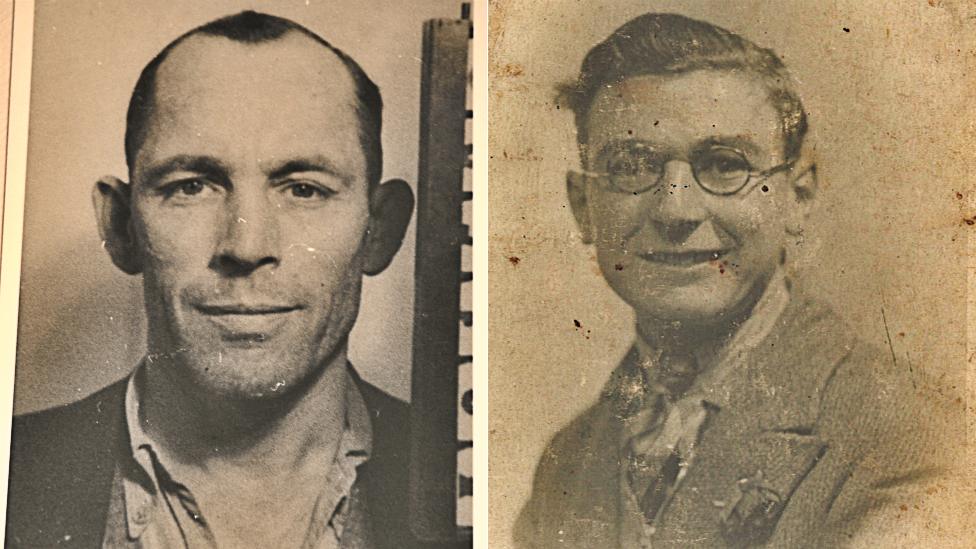
Joe Gillingham (left) and Joe Tierney were deported by German forces from the Nazi-controlled Channel Islands for secretly distributing BBC News
Just a few months after their daughters were born they were snatched away by Hitler's forces in the German-occupied Channel Islands and never returned home. Now after more than 70 years a BBC investigation has helped solve the mystery surrounding the final resting places of two resistance heroes who died at the hands of the Nazis.
Cambridge University academic Dr Gilly Carr spent a decade searching archives around the world and has uncovered new information about the fate of Joe Gillingham and Joe Tierney.
The men lived on different Channel Islands and were both deported for distributing BBC news reports - a banned practice.
German armed forces occupied the Channel Islands from June 1940 until May 1945.
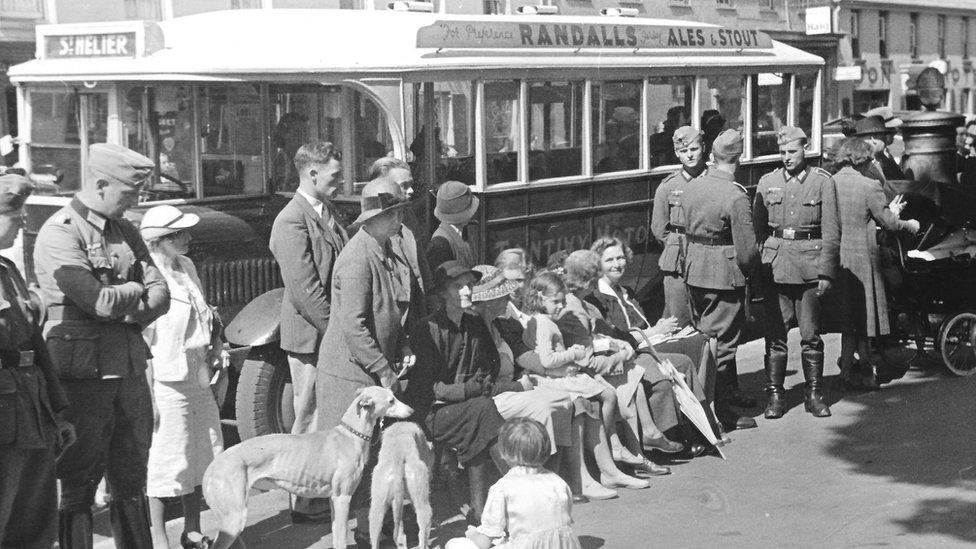
Jersey was occupied by German forces from June 1940 until May 1945
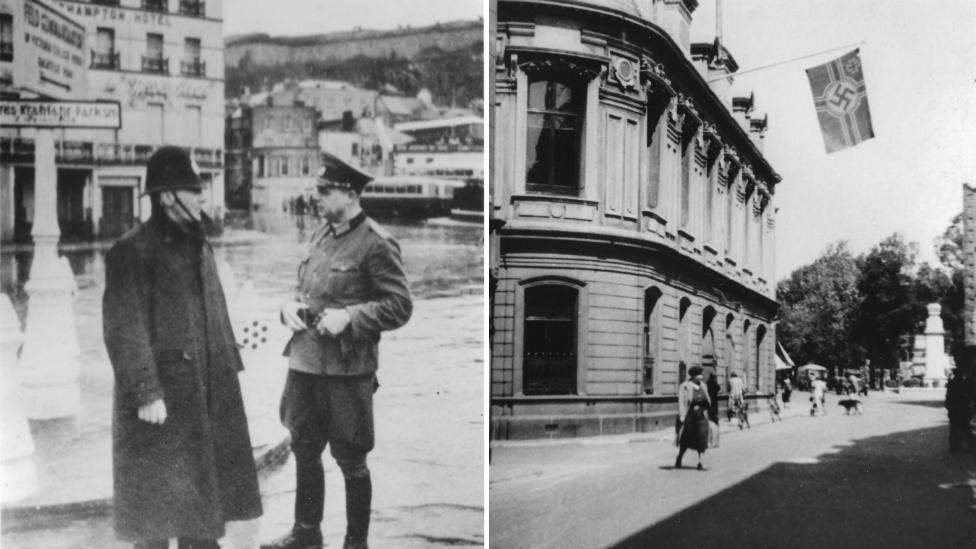
Thousands of German troops were stationed in Jersey and the Channel Islands were heavily fortified as part of Hitler's Atlantic Wall
Pat Fisher's father, Joe Tierney, was arrested five months before she was born and was deported to a prison in Dijon in September 1943.
She said: "He was very, very strong, he must have been so brave. It's very difficult and I just would've loved to have met him."
Jean Harris's father, Joe Gillingham, was one of five members of the Guernsey Underground News Service (GUNS) who were deported and imprisoned for wireless offences and secretly spreading news.
"There was a lot of anxiety for my mum, to spend years trying to find out what happened to him, waiting for him to come back after the war had finished."
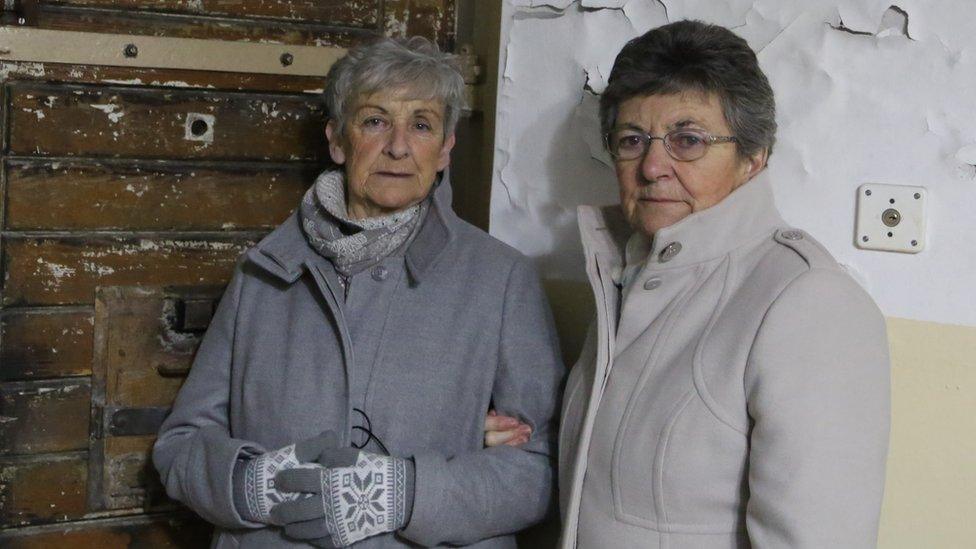
Jean Harris (left) and Pat Fisher share remarkably similar stories but met for the first time when taking part in the BBC documentary
Both men were crammed into cattle trucks and sent to prisons in the heart of Nazi Germany but their fates remained a mystery.
As part of BBC investigation Dr Carr took Pat and Jean to Europe to retrace their fathers' steps in the hope of finding clues.
"It definitely drives me when I read these testimonies of what people went through, it makes me want to get justice for them and find out more for the families," Dr Carr said.
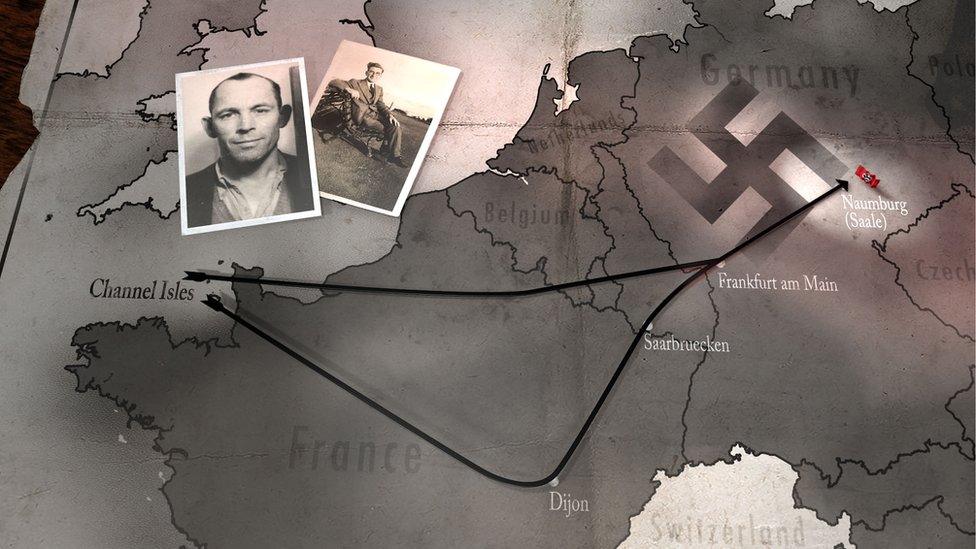
Both Joes were sent to different prisons in Europe before ending up in the heart of Nazi Germany in Naumburg (Saale) prison
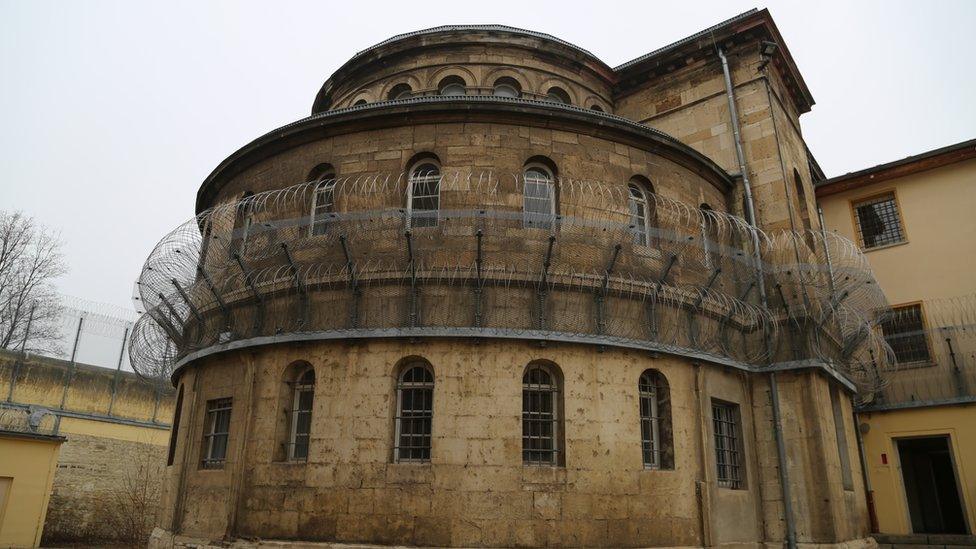
Naumburg prison is no longer in use but inside little has changed sine 1944 when it housed 350 inmates
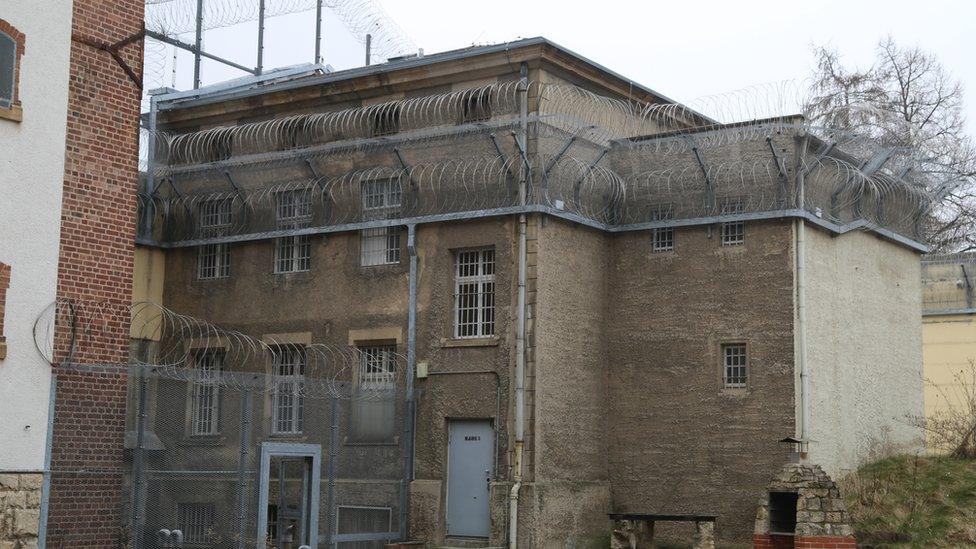
Typical rations at the prison during the war would consist of a six ounces of bread and a litre bowl of soup a day
In July 1944 both men ended up in the same prison in Naumburg (Saale), Germany, where dysentery and dropsy were rife and deaths were occurring at a rate of 18 men a week.
Frank Falla, a fellow incarcerated Channel Islander, who made it home alive, said inmates were "not allowed to smoke, talk, sing, hum or smile".
After visiting the site Mrs Harris said: "It's like walking in my father's footsteps, I now know what it must've been like for the men, it must have been awful."
In February 1945 her father left the prison but his next destination and fate were unknown.
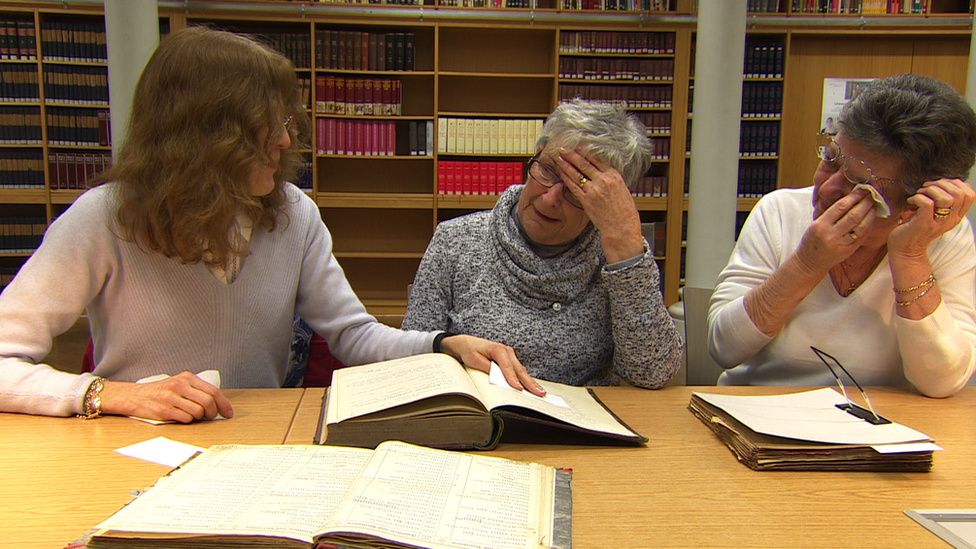
In Halle archives Jean Harris (centre) finally discovered where and how her father died
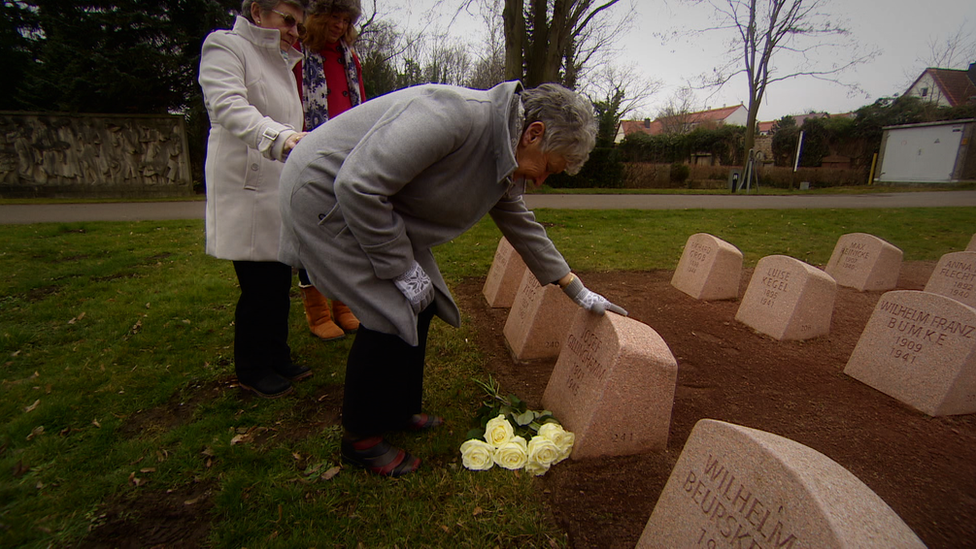
Unbeknown to his family Joseph Gillingham was buried in a cemetery in Halle in a section reserved for Nazi prisoners
Pat Fisher and Jean Harris were just a few months old when their father were sent to Nazi prisons
Dr Carr's research discovered that just 40 miles (60km) away in Halle archives there are paper records of German prisoners which reveal Joe Gillingham died on 11 March 1945 from heart failure in the city's prison.
Unbeknown to his family he was cremated and his ashes were buried in a local graveyard in a section reserved for prisoners of the Nazis.
Mrs Harris said: "At last I have found the closure I have been looking for. I'm at peace now I know how the story ended and where he is."
Pat Fisher's father met a different fate. Not long after he left Naumburg prison in March 1945 he made a desperate escape attempt.
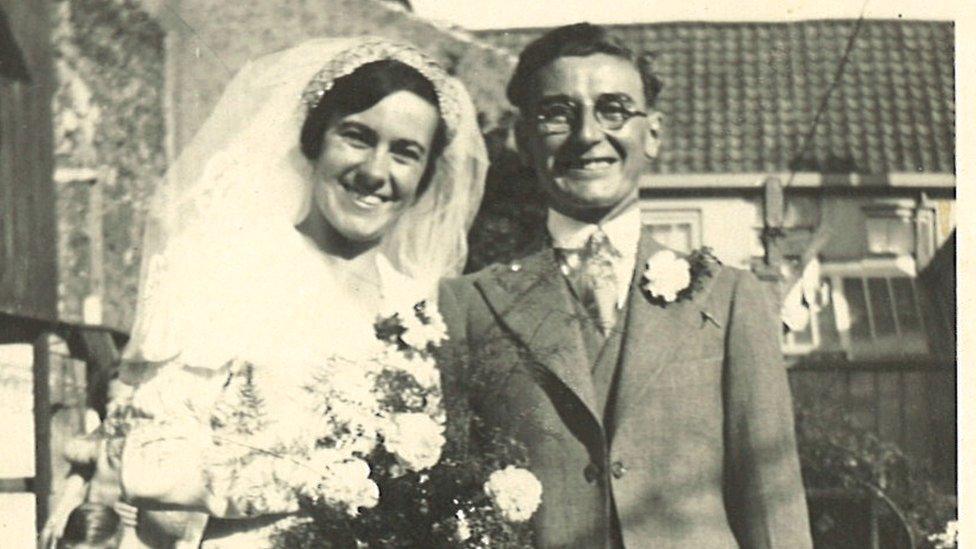
Joe Tierney escaped from the SS for a couple of days but was recaptured and died less than a week before the end of the war
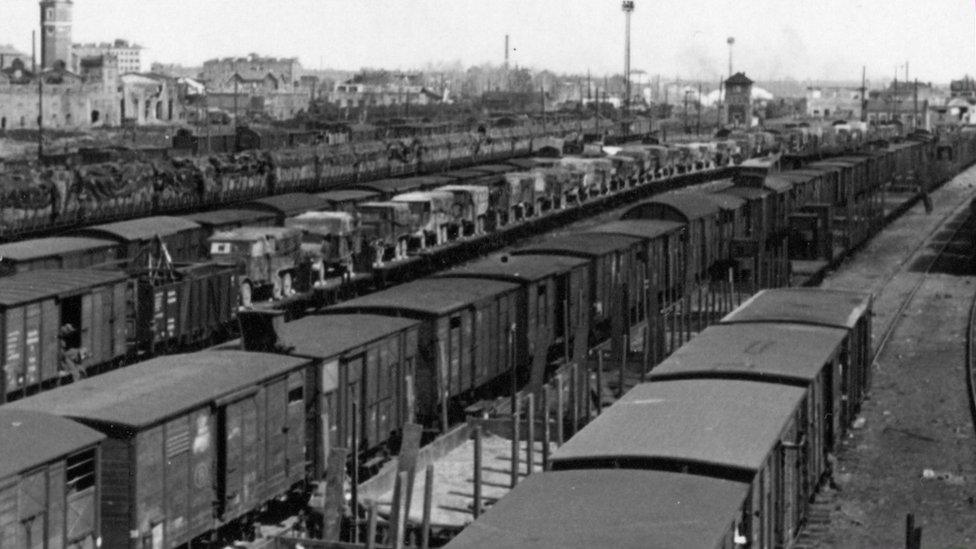
Joseph Tierney and Joseph Gillingham were shackled and packed in windowless cattle trucks with other sick and starving prisoners
At that time German forces had almost been destroyed by the Allies and the Nazis were trying to cover up their atrocities.
Joe Tierney was being taken to a concentration camp in the Sudetenland, today part of the Czech Republic, when he managed to get away.
Dr Carr said: "The men around him were either being killed or dying of their diseases and hunger and he probably thought, 'what have I got to stay for?'"
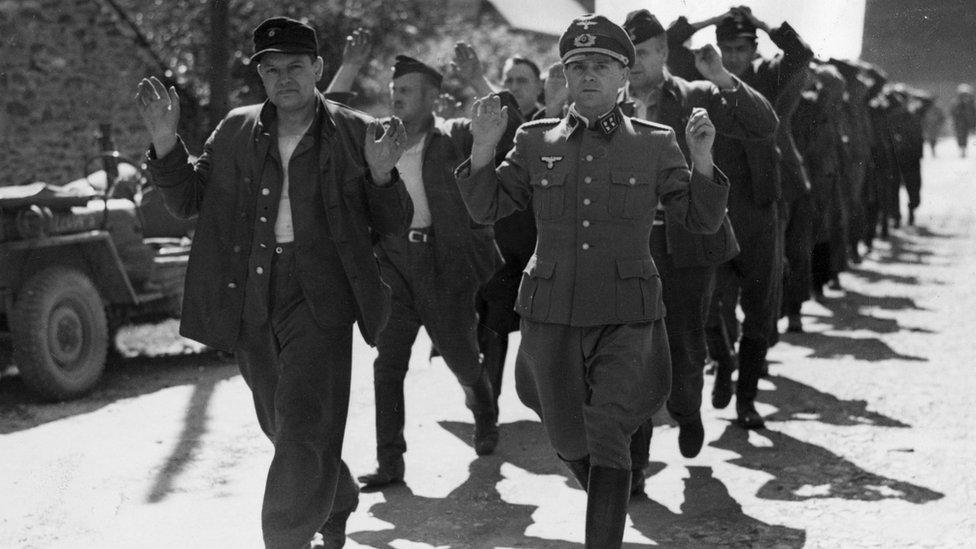
As Germany started to lose the war the Nazis made efforts to cover up the atrocities they had committed
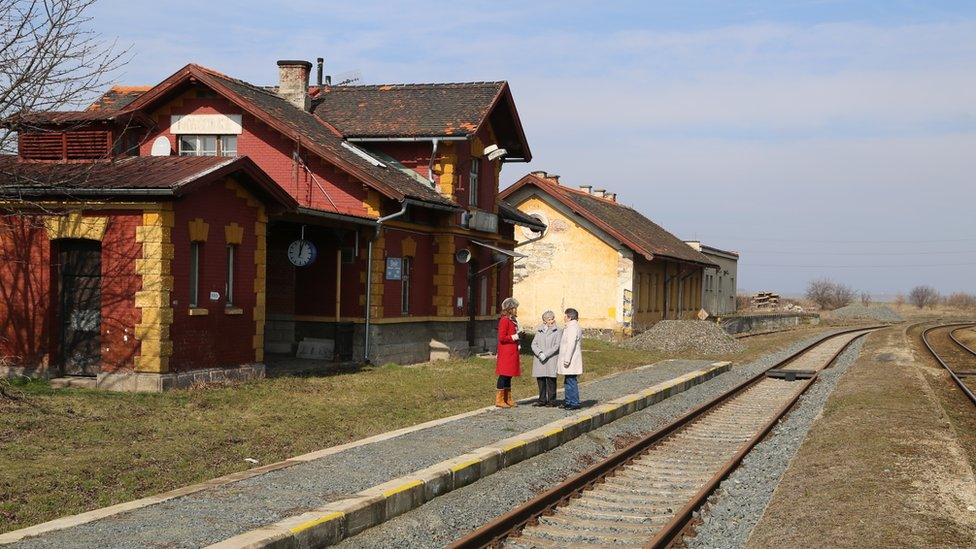
Joe Tierney died in the arms of a fellow prisoner at Kastice station a week before the end of the war
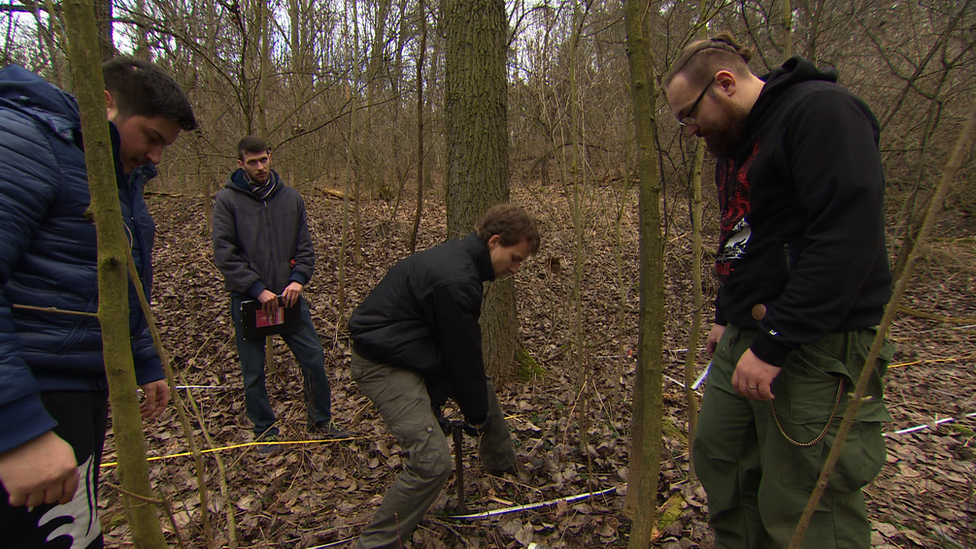
The University of West Bohemia is excavating the mass grave where Joseph Tierney was buried to learn more about the atrocities committed there
His escape wasn't to last, he was captured a couple of days later and died less than a week before the end of the war.
His death was described by fellow prisoner Albert Koch in a letter to Mr Tierney's widow after the war.
"He and I were placed in cattle trucks, and it was not till some days later that your dear husband died in my arms in Kaschitz at 11:30pm on 4th May 1945."
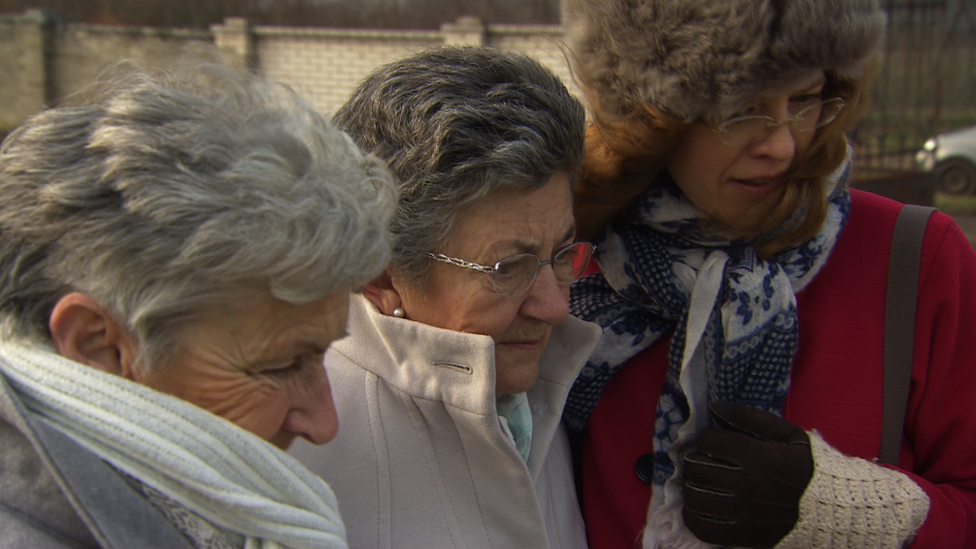
Dr Gilly Carr said: "I'm so pleased for the two women; on this trip we've spent half our time crying, half our time smiling, at every bit of progress we've made."
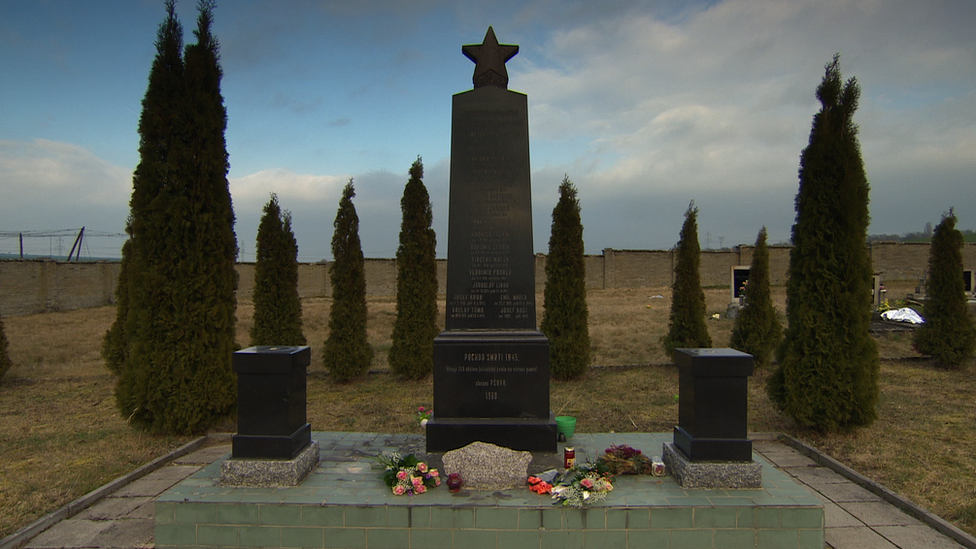
A memorial in Psov, Czech Republic, marks the spot where Joseph Tierney and 233 other prisoners were reburied in consecrated ground after the war
Associate Professor of the University of West Bohemia Pavel Vařeka and his team are currently excavating the mass graves in the area to gain a better understanding of what went on.
He said: "We know that two-thirds of prisoners died of disease or starvation and the rest showed evidence of violent deaths - shootings."
Just a few months after the war German civilians living in the area were forced to rebury Mr Tierney and the other 233 prisoners in consecrated ground.
Pat said it was hugely important to her to finally learn of her father's final resting place
She said: "It's been such a journey, there's been so many highs and so many lows, cries and emotions, but it's ended up the best thing ever - you don't know how I feel."
Finding Our Fathers - Lost Heroes of World War Two is on BBC One South West on Friday 6 May at 19:30 BST and on the iPlayer for 30 days thereafter.
Find out more about World War Two from BBC iWonder:
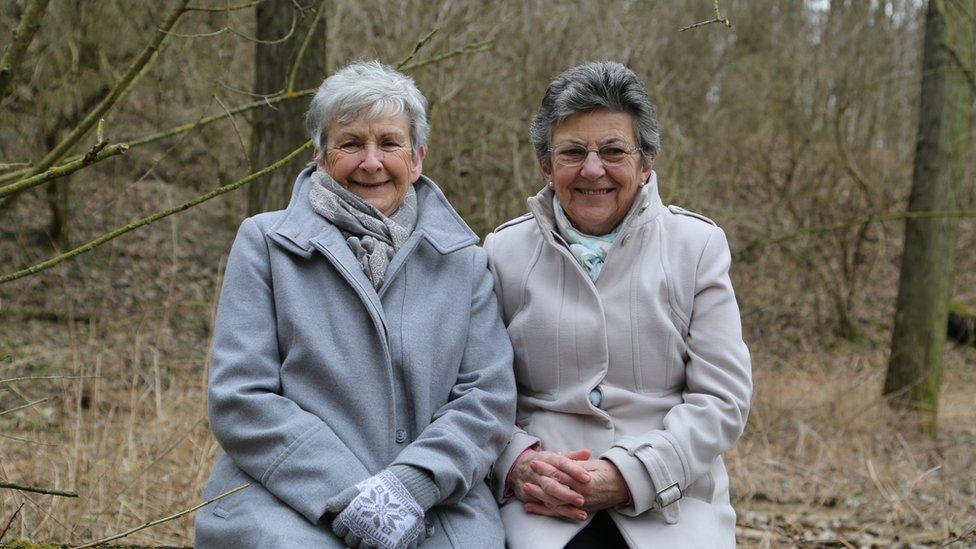
Pat Fisher (right) said: "We've supported each other the whole way. We've become good friends, it's like we've known each other for years. We'll stay in touch."
- Published31 January 2016
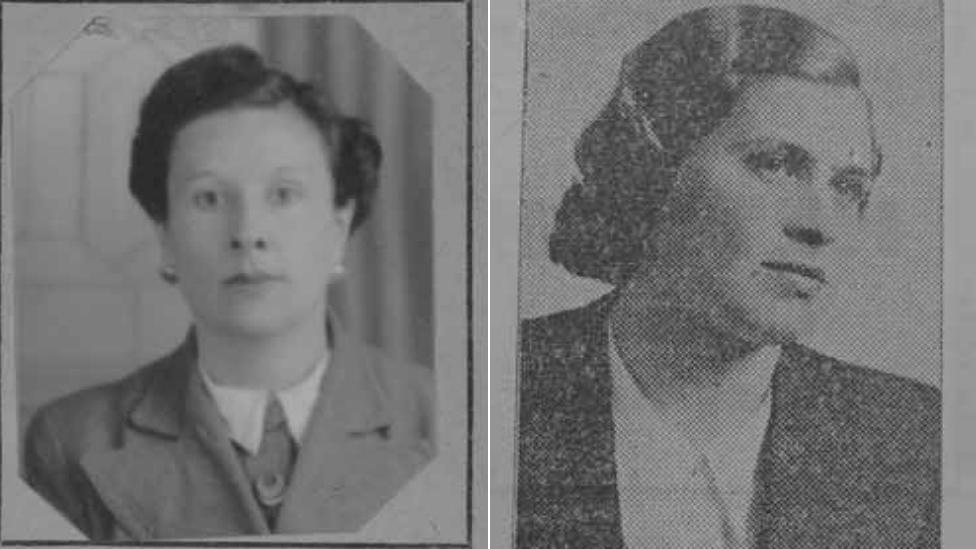
- Published1 November 2015
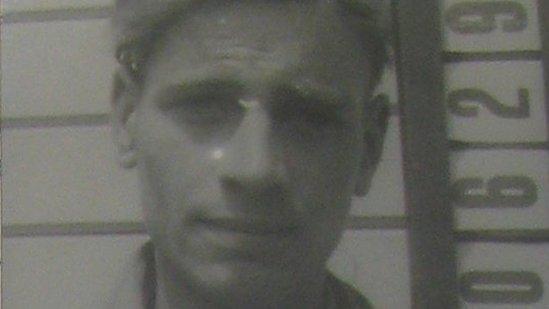
- Published9 May 2015
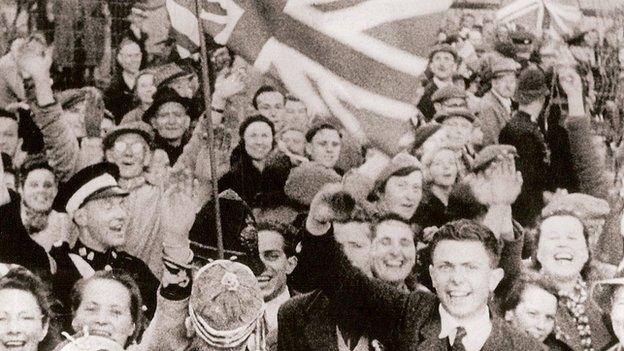
- Published8 May 2015
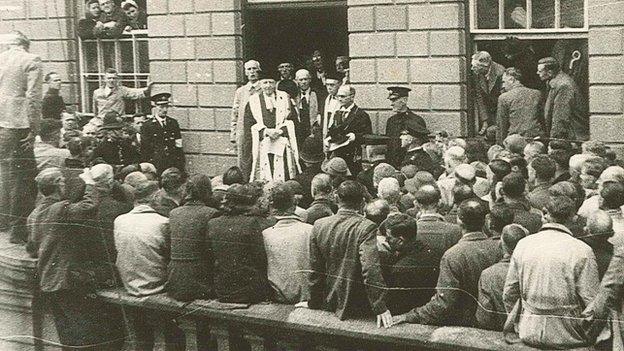
- Published4 May 2015
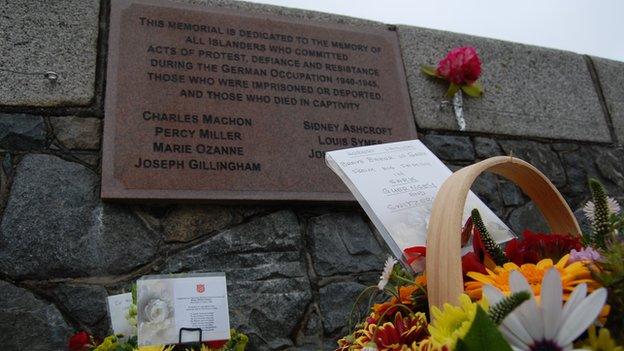
- Published15 January 2015
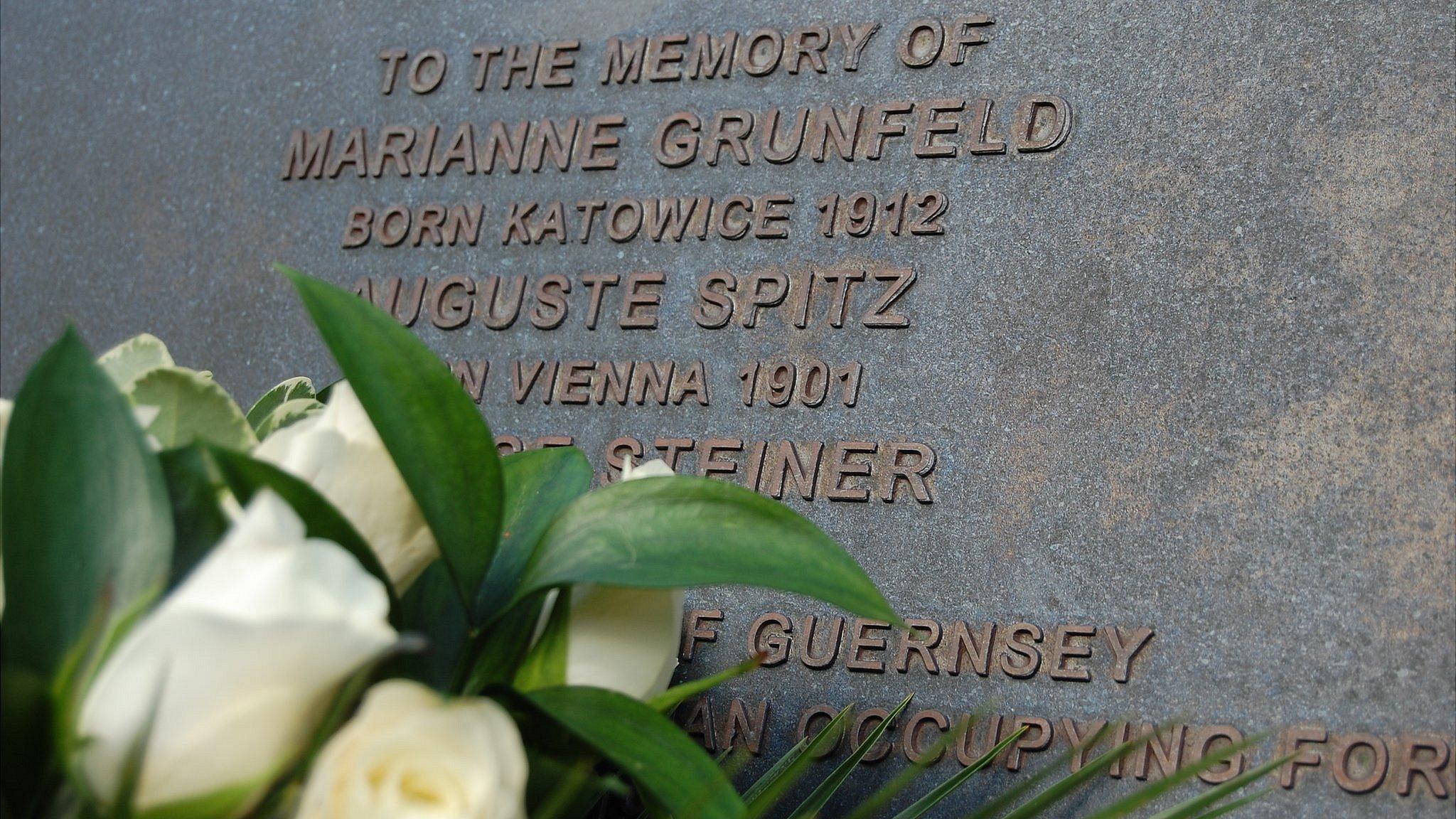
- Published29 December 2014
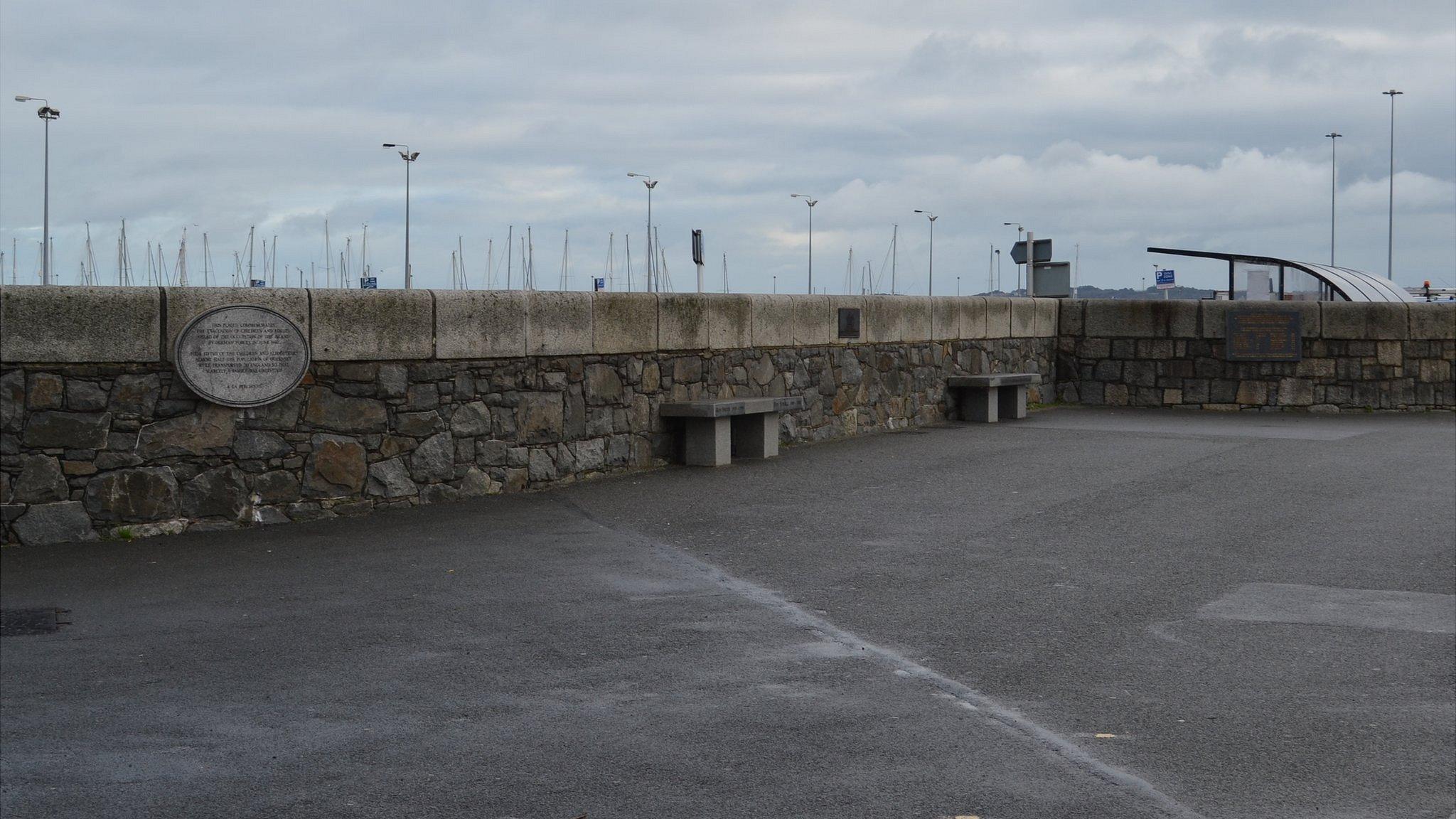
- Published26 November 2014
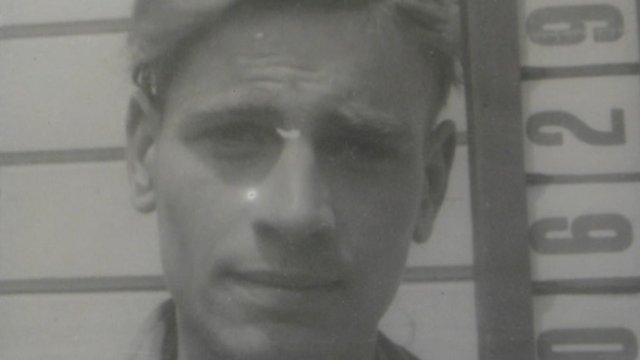
- Published3 October 2014
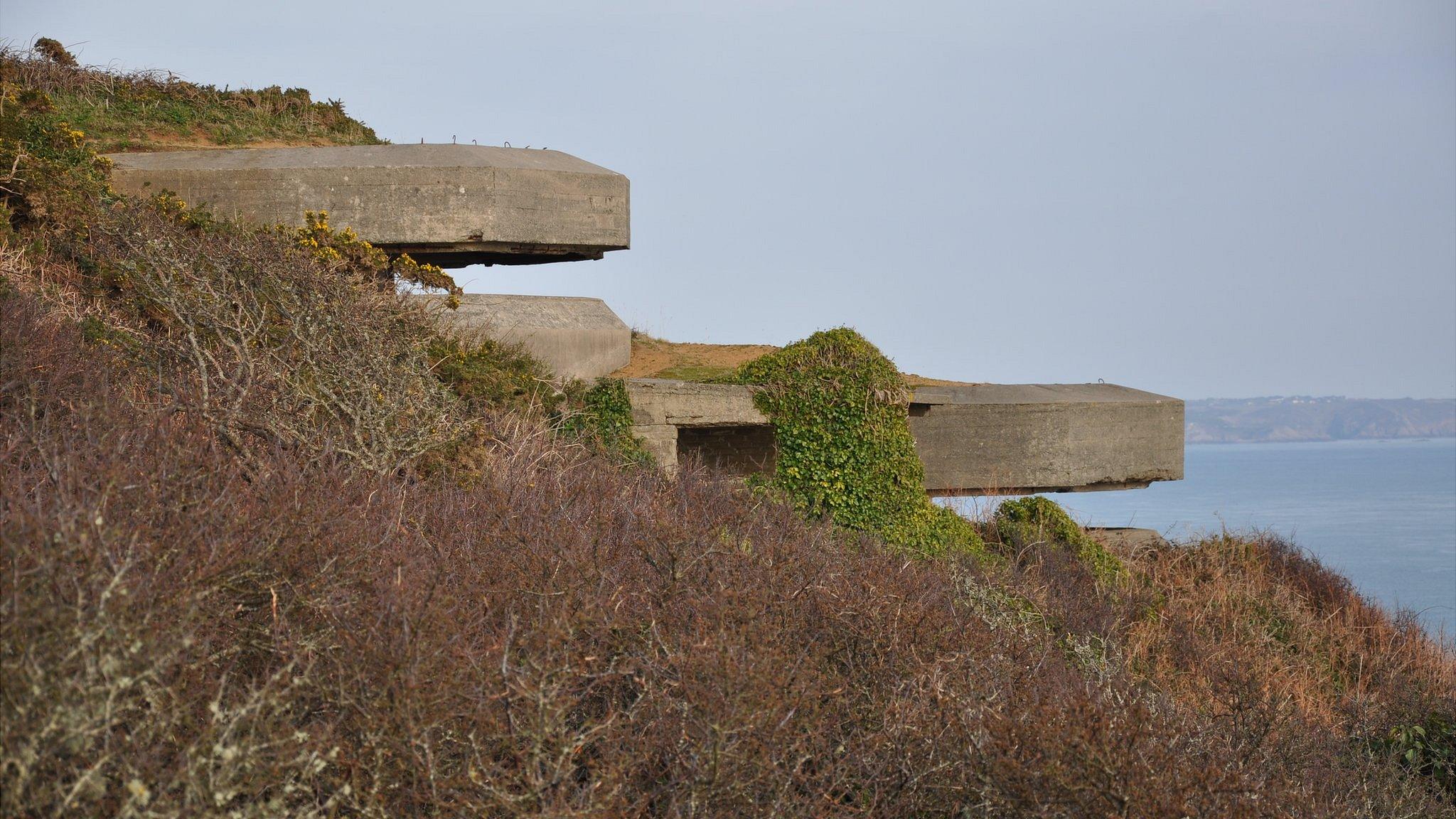
- Published18 November 2010